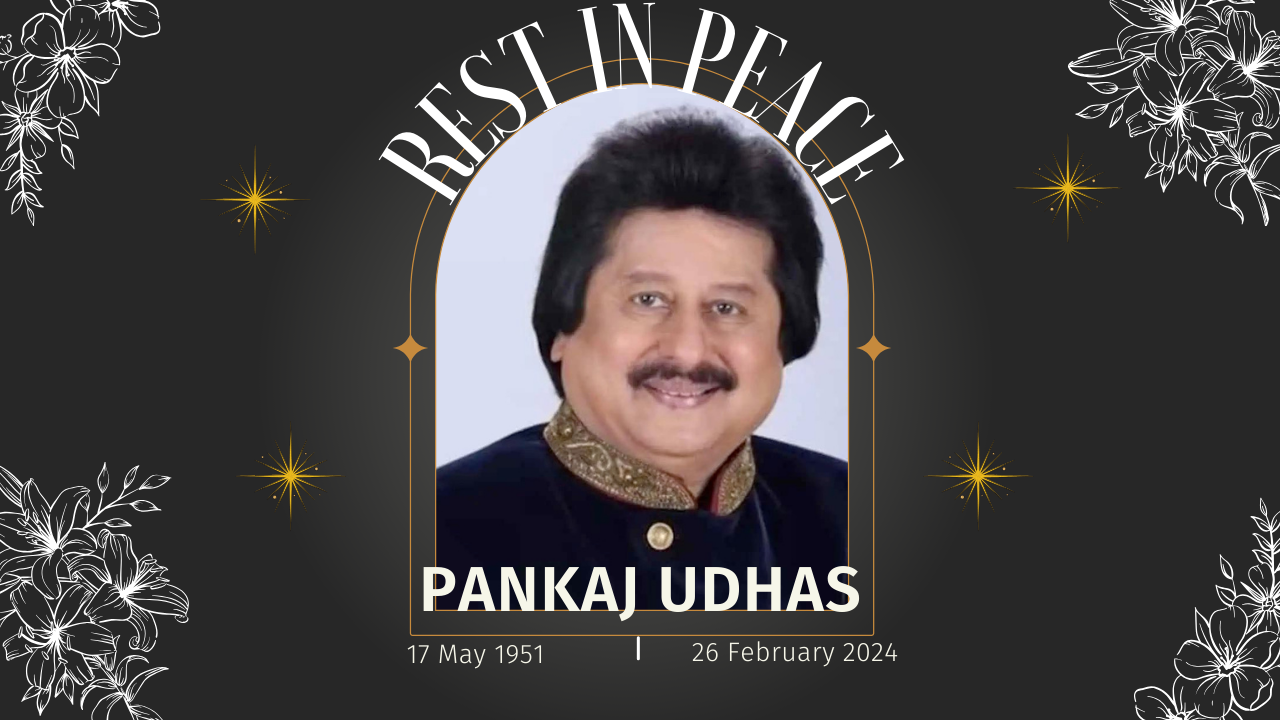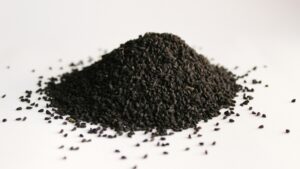Renowned playback and ghazal singer Pankaj Udhas, aged 72, passed away from cancer at Breach Candy Hospital, confirmed Dr. Pratit Samdani, lead oncologist at the hospital. Dr. Samdani stated that the singer had a malignancy which eventually turned out to be fatal.
Statement From Family of Pankaj Udhas
The statement from the singer’s family read, “With a heavy heart, we are saddened to inform you of the sad demise of Padma Shri Pankaj Udhas on 26th February 2024 due to a prolonged illness”.
Achievements of Pankaj Udhas
His soulful renditions and profound contributions to the musical landscape have left an indelible mark. Udhas was best known for his melodious ghazals, including timeless classics like “Chitthi Ayee Hai” and “Aur Ahista Kijiye Baatein”. His career spanned several decades, and he garnered prestigious awards and accolades for his exceptional talent.
In 2006, Pankaj Udhas was awarded the Padma Shri, India’s fourth-highest civilian honor, recognizing his significant contribution to the art of ghazal singing. His immense dedication extended beyond music; he actively supported cancer awareness and research. Additionally, Udhas received the “Kalakar” award in Kolkata for his album “Hasrat,” which was hailed as the Best Ghazal album of 2005. His performances resonated with audiences worldwide, earning him international acclaim and a special felicitation at the Wembley Conference Center in London for completing 20 years of captivating performances at the prestigious venue.
Pankaj Udhas leaves behind a legacy of heartfelt melodies that will continue to touch hearts for generations to come. His contribution to the world of music remains etched in our memories, and he will be dearly missed.
The Incidence of Cancer: A Global Concern
Cancer has become a significant global health challenge. According to the World Cancer Research Fund International, there were an estimated 18.1 million cancer cases worldwide in 2020. Of these, 9.3 million cases were in men, and 8.8 million were in women. Breast cancer emerged as the most common form of cancer, accounting for nearly 2.26 million cases and contributing to 12.5% of the total cancer cases. Lung cancer followed closely with 2.20 million cases, making up 12.2% of newly diagnosed cases. Colorectal cancer ranked third, with 1.9 million new cases in 2020, contributing 10.7% of all new cases.
Cancer in India: A Growing Concern
India, too, faces a rising incidence of cancer. In 2022, an estimated 1,461,427 cases of cancer were reported in the country. The Cancer Research Statistics and Treatment highlights that lung and oral cancers are the leading cancer types among men, while breast and cervix uteri cancers are predominant among women. The incidence of lung cancer has significantly increased, and other cancers, such as those affecting the prostate, ovaries, and endometrium, are also on the rise. The highest age-adjusted incidence rates for men were noted in the Aizawl district of Mizoram, and for women, it was in the Papumpare district of Arunachal Pradesh.
Understanding Cancer: Causes and Risk Factors
Cancer arises due to mutations or changes in the DNA within cells. While the exact cause of these mutations remains unknown, several factors can influence them:
- Tobacco: About 33% of cancer deaths may be attributed to tobacco use.
- Alcohol: High alcohol consumption is another risk factor.
- Diet: Unhealthy dietary patterns, including excessive red and processed meat, sugary drinks, and salty snacks, contribute to cancer risk.
- Physical Inactivity: Lack of exercise increases the likelihood of cancer.
- Environmental Factors: Exposure to air pollution, radiation, and UV light (such as sunlight) plays a role.
- Infectious Agents: Certain viruses (e.g., HPV, hepatitis B, HIV) are linked to cancer.
- Inflammation: Chronic inflammatory conditions may elevate cancer risk.
Early Detection and Prevention
Early detection is crucial for effective cancer management. Here are some strategies:
- Screening Tests: Regular screenings can identify cancers early when treatment is most effective.
- Vaccines: Vaccinations can prevent specific cancer-causing infections (e.g., HPV).
- Lifestyle Changes: Adopt a healthy lifestyle by quitting tobacco, maintaining a balanced diet, staying physically active, and minimizing exposure to carcinogens.
- Awareness: Educate the public about cancer symptoms and risk factors.
Remember, knowledge and awareness are our strongest weapons in the fight against cancer. Let us continue to spread awareness, support research, and prioritize prevention efforts to reduce the burden of this disease.




